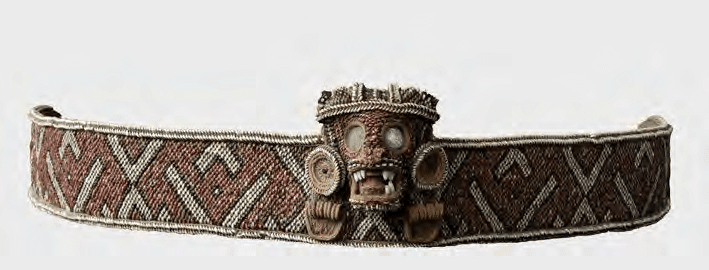Although we admit to being generally ignorant of linguistics and lack the requisite background to properly research this, we would love to explore possible influences from the Kalinago language in Caribbean Creoles like that of Haiti. Although Haiti was not inhabited by speakers of that Arawakan language, the early French colonies (with their African slaves) interacted with speakers of Kalinago in the Lesser Antilles for decades before Saint Domingue became an officially recognized colony by Spain. So, it is not unreasonable to suspect that the early Creoles with a French lexifier probably acquired or absorbed some words from the Kalinago language in the 1600s. That early linguistic stew also included words like ajoupa and boucan, which appear to be derived from mainland South American languages like Tupi (though Rochefort's Vocabulaire does include ajoupa in one form as a Kalinago word).
In addition, there were small numbers of "Caribs" in the French colony as slaves or free people, occasionally appearing in runaway slave ads or other documentary sources. The word also appears in other Creoles with a French lexifier, such as Saint Lucian Creole or in proverbs included in J.J. Thomas's The Theory and Practice of Creole Grammar. The word is also present in the Creole of Guadeloupe, albeit with more connotations of a cooking pot. It thus seems quite likely that the word was acquired in the early French colonies of the Caribbean and thereby entered the associated Creoles of these colonial possessions. It is perhaps not too surprising that words of such a utilitarian and everyday relevance were adopted by Europeans and Africans in the Caribbean environment. After all, that was presumably part of the reason why Taino words like bohio and conuco were retained in the Spanish Caribbean for centuries, long after the disappearance of the indigenous languages of those areas.
With this background and historical context established, let's examine the case of the word kanari. In Haitian Creole, kanari refers to an earthen jar, or vessel that is sometimes included in ritual uses associated with Vodou, such as kase kanari. The overall, basic definition is in accordance with the original Kalinago sense of the term, as a clay pot (Breton's Caraibe-French dictionary is a good example). Moreover, like the Haitian usage, the Kalinago apparently also used their earthen pots in rituals. According to Sieur de la Borde, the Kalinago or "Caribs" also left behind a drink as an offering to the "chemeens" or zemis in a kanary. While the ritual uses of the kanary among the "Island Caribs" differs from that of Haiti, it is interesting to see how earthen pots or vessels designated by a name from an indigenous Caribbean language were absorbed into an Afro-Caribbean religion using earthen pots in a different ritual sense.

No comments:
Post a Comment